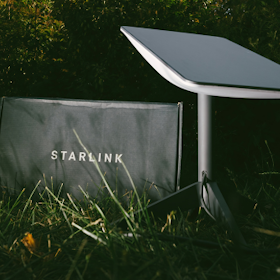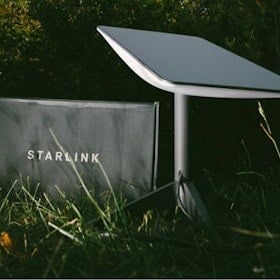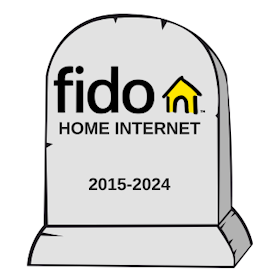Internet Service Providers Compare Plans, Deals & Prices
Browse 8 plans from Virgin Plus...
Browse 24 plans from Bell...
Browse 11 plans from Eastlink...
Browse 34 plans from Koodo...
Browse 20 plans from Xplore...
Browse 13 plans from Carry Telecom...
Browse 24 plans from SaskTel...
Browse 4 plans from Fizz...
Browse 8 plans from BellMTS...
Sifting through internet providers and plans can be hard—really hard—but it doesn't have to be. With WhistleOut's advanced comparison tools, all you have to do is type your home address into our search engine and all of the available plans in your area will pop up. You can even specify price, connection type, and minimum speed in your search!
If you're completely new to selecting internet providers and plans and want help understanding bandwidth speeds, then we recommend you learn what's a good internet speed for me? Once you're ready, WhistleOut Canada will help you find an home internet plan you love!
Internet Providers
Top internet providers like Bell, Rogers, Telus, Shaw, Cogeco and Videotron (among many others) are often region specific–no single network providers offers services to all 10 provinces and three territories. Most areas are serviced by one telecom (phone company), like Bell or Telus, and one cable company, like Rogers or Videotron. However, Canada also has a diverse selection of independent Internet Service Providers (ISPs) that buy wholesale network access and resell internet service to consumers. These reseller ISPs sell plans in many regions with more affordable prices, but don't always offer premium services like gigabit internet.
It can be hard to find the plan you want from a specific internet provider because their services and fees are often region specific. If you're in Atlantic Canada, then some of your top internet providers are Bell Aliant and Eastlink. If you're from western Canada, then some of your "go to" internet providers are Telus, Shaw and Sasktel. Those living in Ontario and Quebec are mostly serviced by Bell, Rogers, Cogeco, and Videotron. That's why it's so important to type your address into our search engine, so we can tailor the results to your specific region. If you're concerned about privacy, just use your postal code.
Internet Connection Types at-a-Glance
Many people know they need to find a broadband plan that will allow them to connect to the internet, but they're not exactly sure which connection type to get. For instance, if you've decided to go with cable and you're in need of fast upload internet speeds, then you've got the wrong connection type. While some cable internet providers may offer upload speeds of up to 100Mbps, most can only reach 30Mbps. Fibre optic, like the services offered by Telus and Bell Fibe, can reach upload speeds more than 10x faster than cable! So which connection type do you need? Our quick guide below will help you find out.
DSL (Digital Subscriber Line)
DSL internet, which includes ADSL and VDSL, uses the existing telephone infrastructure to deliver the digital data to your home. Once it's received at your home, your modem unscrambles the information and sends the data to your devices.
DSL tends to be a wildcard in terms of price and speed, but is the most widely available high speed internet technology in Canada. You can find a range of download speeds between 10Mbps and 150Mbps, but DSL services typically max out at 50Mbps. In some provinces, it will be neck-in-neck (in price and speed) with your available cable internet options, and in others, it will be a lot slower and more expensive than cable. Before you select a DSL plan, just make sure you can't get a faster and cheaper internet plan via cable.
Some top DSL internet providers include Bell, Telus, and SaskTel, as well as reseller ISPs like VMedia, Teksavvy, and execulink.
Cable
Cable internet uses a very similar technology as DSL, but it uses the existing cable TV infrastructure to deliver internet service to your home. As a result, it's one of the most common ways for Canadians to connect to home internet. It requires a modem and router for delivering data to your home, but the underground connection is often a lot more stable.
Because cable is one of the most popular ways to connect to the web, you're likely to get the best price and speed by going with a cable internet provider. On top of that, it's very common for providers to offer customers the option to bundle their internet service with an added TV service, too.
If you're looking for speeds over 50Mbps, going with cable is often your best bet. It isn't until you begin looking for plans at around 1Gbps or upload speeds over 30Mbps that fibre might come in and give you a better deal. Just make sure to closely compare both options before you make your selection.
Some of the top cable internet providers are Rogers, Shaw, Videotron, Eastlink and Cogeco. Nearly every independent wholesale ISP offers cable internet too.
Fibre Optic
Fibre internet offers customers bandwidth speeds of up to 1.5Gbps (1,500Mbps), which is fast enough to download an HD movie in 10 seconds. However, it requires the use of a special fibre optic infrastructure which is still rolling out in many areas. If it is available in your area, you have access to light-speed internet. Really! Fibre optic uses light photons to transmit data into your home.
If you're lucky enough to have a service provider in your area that offers fibre, just make sure to watch the upfront fees, which should include your modem, router, and installation. Some providers may need to extend their physical fibre network for you, which could cost hundreds of dollars upfront. If the fibre wires already exist in your area, you should be able to find that it's about the same price as cable (upfront fees and all), get reliable speeds and faster uploads.
Some of the most popular fibre internet providers in Canada are Bell Fibe, Telus PureFibre, and SaskTel infiNET. Independent internet providers don't offer fibre optic services at this time.
Satellite
Satellite allows you to connect the internet without cables or wires. Because of that, this connection type is best known for bringing internet service to rural residents who would have otherwise had to go without internet at all.
To be a candidate for satellite internet, you need to have a clear view of the sky, so your dish can communicate with satellites to send and receive data. You still need a modem, just like the other connection types, and you'll need a dish too. All of which can be bought or leased for a fee that could be folded into your monthly service bill.
Because satellite signals are sent from such a great distance, download and upload speeds are typically a bit slower than you'd find with a wired connection types—starting at 12Mbps and topping out at 100Mbps. You should also be aware that monthly service and installation fees can cost hundreds of dollars.
Xplornet is Canada's most well-known satellite home internet provider. However, Starlink is a new company that plans to bring high speed, low latency internet to much of rural North America.
Speed, Installation, Fees, and Contracts
It's so tempting to go for the plan with the highest bandwidth, but do you really need all that speed? With internet plans, your monthly fees will largely be based on your data limit, download speeds, and which internet provider you choose. So if you choose a speed that's too high, then you might be wasting money. If you're not sure which speed to pick, then take a look at our home internet speed guide to find your perfect speed.
Once you’ve narrowed down your connection type options to DSL, cable, fibre or satellite, you’ll want to explore the installation and rental fees that each internet provider will charge you. Installation costs can range from free or nominal to quite expensive, depending on the type of internet connection you’re going with. The same goes with equipment rentals (modem, router, etc.). The good news (and something to look out for) is that internet providers offer deals on these fees all the time.
As you shop our site, make sure to click on any of the plans in WhistleOut’s comparison engine to see a breakdown of a particular provider’s charges. We list each plan's upfront fees right below the monthly service quote to make your search easier. Any promotional deals will show up in this area, too.
Last, you’ll also want to think about the contract terms of the plans you’re researching. It used to be that internet service automatically translated into multi-year commitments, but that’s not necessarily the case anymore. Many internet providers now offer contract-free, month-to-month terms, allowing customers to jump ship whenever they want, without incurring huge termination fees. Note, also, that in most cases the prices you see advertised are so-called "promotional" prices that expire after 3, 6, or 12 months, then your bill goes up after that. They're not a bad thing, but do make sure to take note of the date your deal expires so you can reevaluate your plan at that time instead of getting blindsided by a sudden increase in monthly expenses.
































































